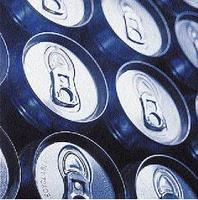Kingston-based nutritionist Patricia Thompson notes that instant energy comes from caffeine which is a stimulant. But, what else do high-caffeine energy drinks consist of, and why are those ingredients present?
One popular ingredient in high-energy drinks is sucrose (table sugar) or glucose. Many also include a range of vitamins and some have amino acids.
Others have herbal supplements such as gingko biloba, echinacea, ginseng and St John's Wort, and include guarana (a caffeine-containing extract from a South American plant).
What is it about caffeine which causes the jolt of energy?
The drug, researchers note, cause neuron firing in your brain, excess neuron activity triggers the pituitary gland to secrete a hormone that tells your adrenal glands to produce adrenaline.
Adrenaline provides the burst of energy. Some detractors complain that when this adrenal high wears off later, you feel the drop in terms of fatigue, irritability and possibly headaches.
Sugar a quick source of energy

Other elements in energy drinks are not as controversial.
Sugar is present as a source of energy, and also because it has an appealing taste. Sugar is rapidly digested and absorbed into the body, providing a quick source of energy.
B group vitamins which are present in some drinks are used by the body to release energy from food.
Amino acids are provided, some believe, because they play a role in muscle contraction, especially in the heart.
Herbal supplements, such guarana, are usually present in these drinks as the main source of caffeine. The question frequently asked is: how much caffeine is too much?
The typical energy drink provides about 80 mg of caffeine per can. This is about the same as the amount of caffeine provided by an average strength cup of coffee, and about twice that in a cup of tea. It is also about twice the level of caffeine found in a can of carbonated, cola-flavoured soft drink.
Caffeine sensitivity
Some people are especially sensitive to caffeine, showing symptoms of caffeine sensitivity (tremors, sleep disturbances, gastrointestinal upsets) following consumption of relatively small doses of caffeine. Caffeine is not recommended for those who suffer these adverse reactions to caffeine-containing drinks, such as coffee.
Individuals with heart disease should avoid large intakes of caffeine. Researchers note that the sudden 'jolt' to metabolism caused by the stimulant caffeine (which is a stimulant) can be enough to trigger a heart attack in people with pre-existing heart conditions.
Pregnant women are also well advised to avoid high-caffeine beverages.
Information sources: www.nutritionaustralia.org and www.naturalnews.com.

